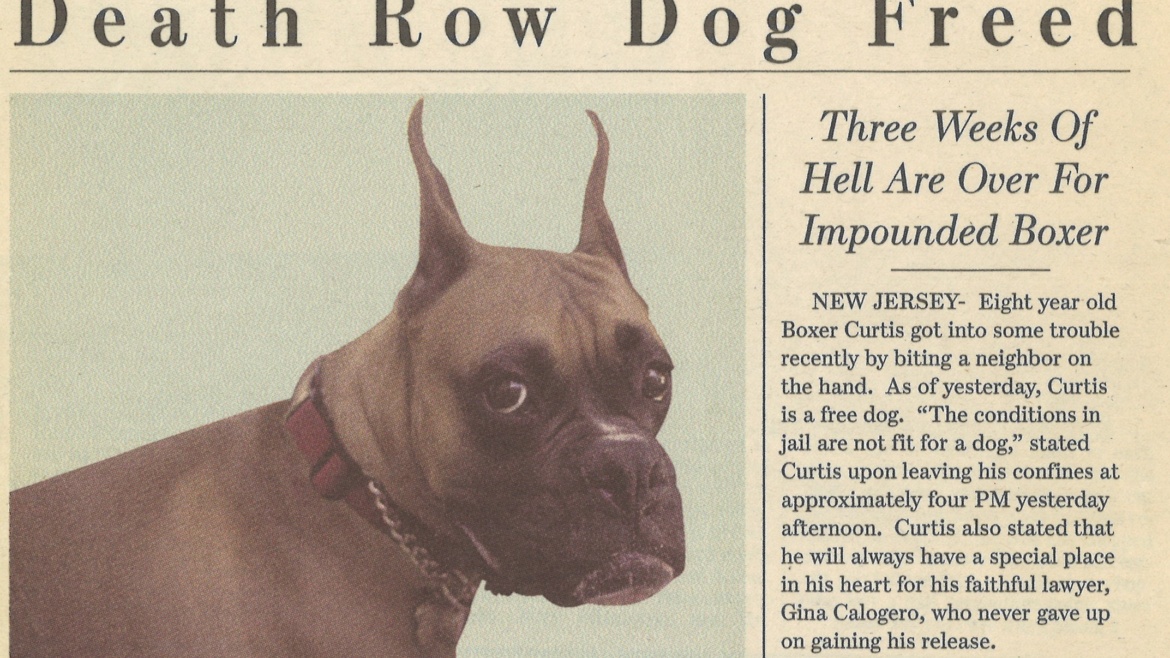The New Jersey Vicious and Potentially Dangerous Dog Act, N.J.S.A. 4:19-17 et seq., imposes penalties and conditions on dog owners whose dogs have injured a human being or killed or seriously injured a domestic animal (pet). Trials are held in Municipal Court but because the statute is rarely invoked, it is often misunderstood by municipal judges and prosecutors.
It is extremely important to have an experienced attorney in these matters because the statute carries a potential death sentence of euthanasia for a dog deemed vicious. The statute is designed to be commenced with an impound of the dog by the Animal Control Officer (never police or citizen’s complaint).
The municipality bears the burden to prove every element of the law by clear and convincing evidence. To prove a dog is vicious, the State must show that the dog
- Killed a human in an unprovoked attack; OR
- Seriously injured a human in an unprovoked attack (serious injury means the person is maimed, nearly killed, or has a “severe, permanent disfigurement”);
The key is often proof of provocation, which is not defined by the statute, unfortunately. The best-case scenario is to view provocation from the standpoint of the dog – for example, the dog was protecting its family or property. Unfortunately, judges and prosecutors do not always see it that way.
If a dog is found vicious, the court may impose the ultimate penalty of euthanasia. The court also has the option to impose lesser restrictions on the dog, but no less than the restrictions that would apply to a dog found “potentially dangerous.” (SEE prior blog dated DATE).,
To recap, this includes:
- Labeling the dog potentially dangerous for its entire life, no matter where you live;
- Registering the dog with a special red license tag, with exorbitant yearly licensing fees;
- Tatooing or microchipping the dog;
- Keeping the dog in an enclosure/kennel with locks and gates, and surrounded by a 6’foot high fence;
- Erecting large signs on the house, the fence, and the kennel/enclosure warning the dog is “potentially dangerous”;
- Walking the dog with a muzzle on a 3-foot leash;
- Periodic inspections of the home, the kennel and the muzzle/leash by the ACO;
- Impoundment and trial of the dog if any of the conditions are violated;
- Notice to the ACO of your town and new town if you move or give the dog away;
- Liability insurance, which is difficult to procure if there is a history; and
- Other onerous restrictions.
 There is an alternative to a trial and a finding that your dog is vicious or potentially dangerous if the ACO, the prosecutor and the owner agree to a settlement. The law allows the municipality to settle on any terms that all parties find acceptable. But, if there is no settlement, there will be a trial, which is very risky.
There is an alternative to a trial and a finding that your dog is vicious or potentially dangerous if the ACO, the prosecutor and the owner agree to a settlement. The law allows the municipality to settle on any terms that all parties find acceptable. But, if there is no settlement, there will be a trial, which is very risky.
Gina A. Calogero has almost 30 years of experience litigating and settling vicious and potentially dangerous dog cases on a trial level and appeal. She has drafted dozens of settlement agreements under the act and has presented seminars and lectures to lawyers, judges, police officers and prosecutors. Her work is well known by many ACO’s, judges and municipal prosecutors throughout the State.




